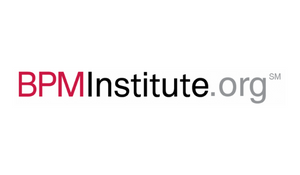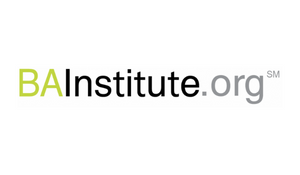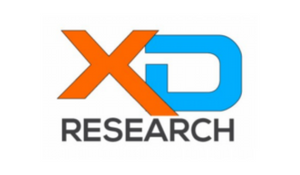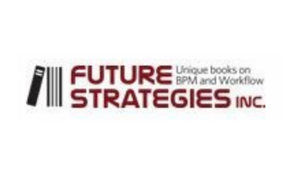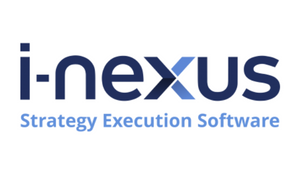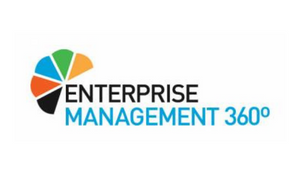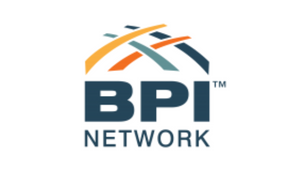
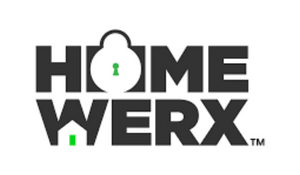
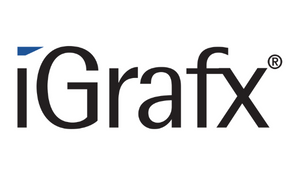
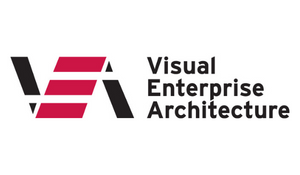
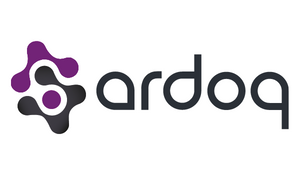
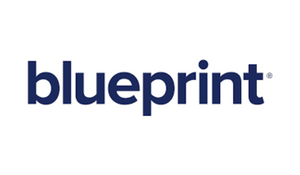
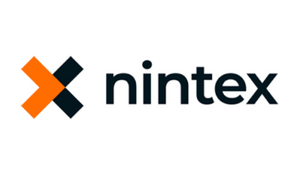
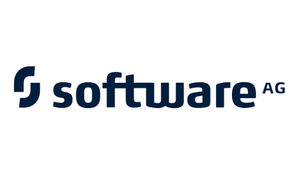
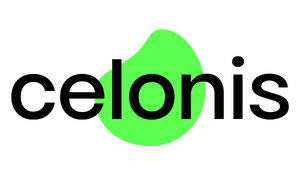
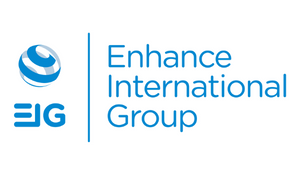
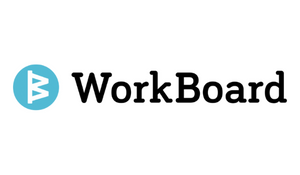
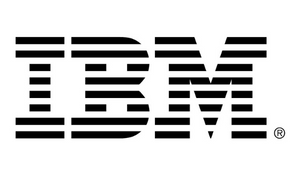
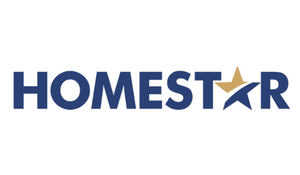
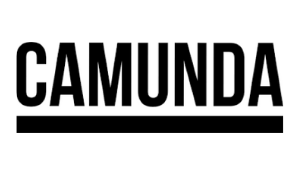
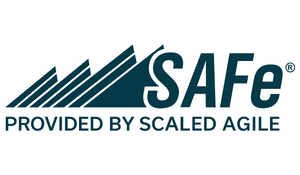
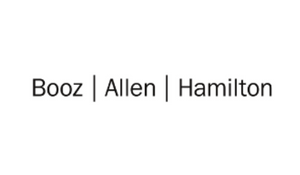
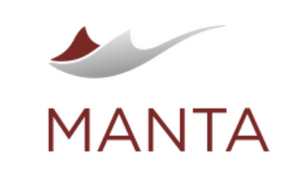
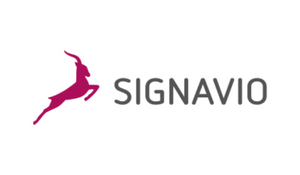
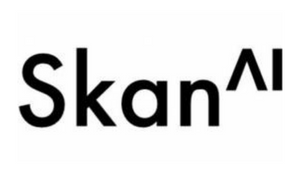
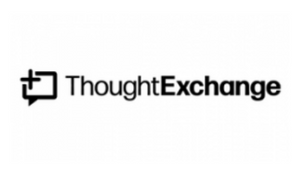
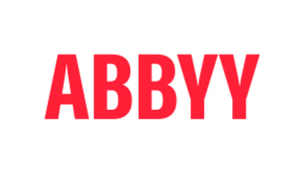
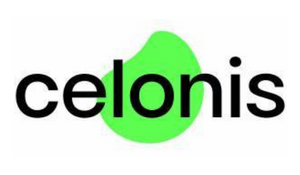
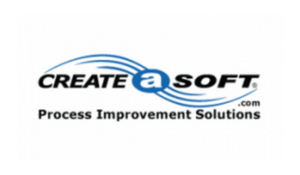
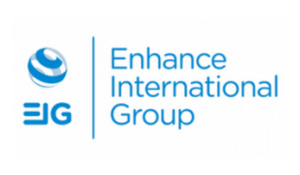
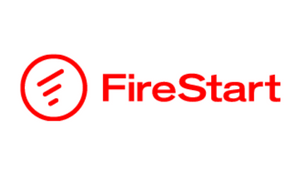
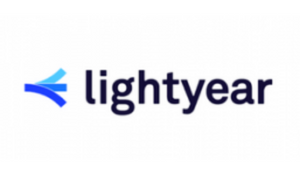
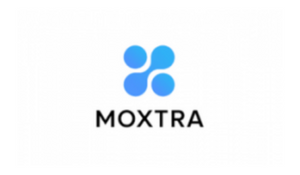
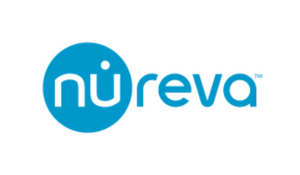
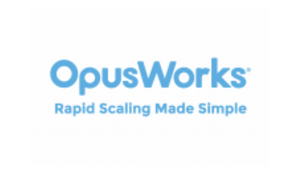
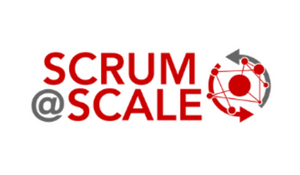
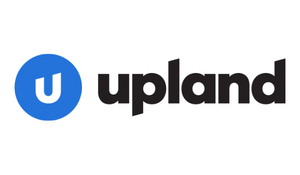
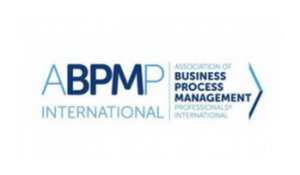
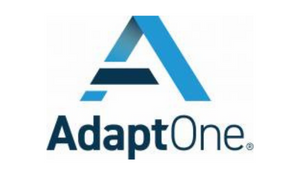
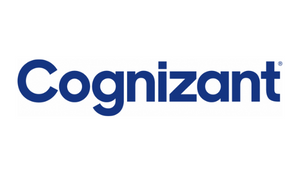
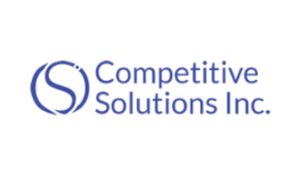
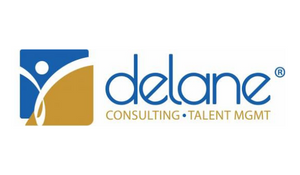
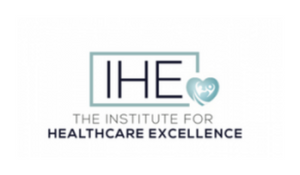
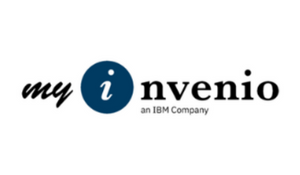
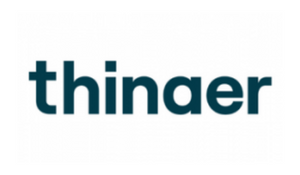
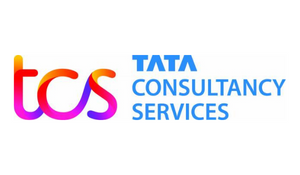
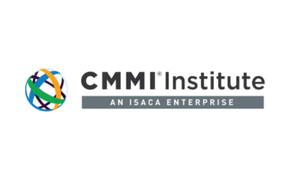
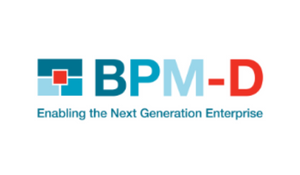
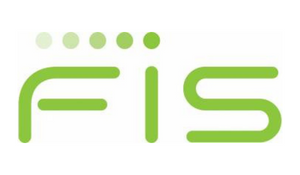
Courtesy of LEGO's Peter Evans, below is a transcript of his speaking session on 'LEGO: A BSO perspective, Service Mindset and Op Ex' to Build a Thriving Enterprise that took place at BTOES Cultural Transformation Live, A Virtual Conference.
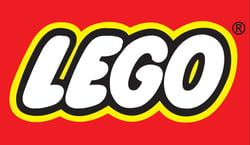

Session Information:
Presentation from a leader in Cultural Transformation for Operational Excellence & Business Transformation who will be delivering ‘high-octane’ sessions on the very latest technology, solutions and case studies on best practices to meet the most pressing challenges that you face today.
Explore some of the latest tech and thinking from industry-leading solution providers, explore what each product and solution can do to help your organization along on your Operational Excellence & transformation journey.
Session Transcript:
And very excited to have Peter Evans directly from Europe to us today, and to share his experiences and leadership with Legos. So Peter, if you could please join us. I'm I'll do a brief introduction on Peter here, Peter Is is a is a is a friend of our organization, and an often contributor to the organization, and many of you already know his many achievements, so I'll be brief. He joined leg go in 2006 to 16 continuing a long successful career in Change management continuous improvement operational excellence with great businesses, including General Electric, capital, Vodafone, Virgin median and Marist Line He lives in mid wales in the UK and usually spends time traveling between various Lego locations.
Peter leads Service and Performance Management for the Business Services Organization, or BSO, .... Peter, thanks for being with us today, and thanks for sharing your journey with us.
Thank you so much, Josie, and particularly great to be with you again, and as part of this brilliant conference, as, as Josie said, I'm based in mid Wales, and I've actually been here without traveling at all since the end of February, which is very, very strange. For me, I usually travel about three times a month to various locations across Europe, Poland in Denmark where libraries based, but also to Prague, to Singapore, to Monterrey, Mexico.
And of course I've not been doing any of that and I guess like many, many people like me actually found myself busier and busier during this interesting time, but also with some space to think and some space to kind of do more research as I've, of course, not been on airplanes quite often, which is also not a bad thing.
So I'm going to talk to you a bit today about my own perspective on on on things. I'll talk a little bit about Lego and and, and I'll weave that into the story as I go.
I will give a kind of personal view around culture and some thoughts and some thinking that I've been doing of late, which, which I hope is you find interesting? I'll also talk about my own story and what I what we call purpose to impact and tell you a little bit more about that Because, I think it's, it's particularly for me, formed a very, very important part of my last of this last year.
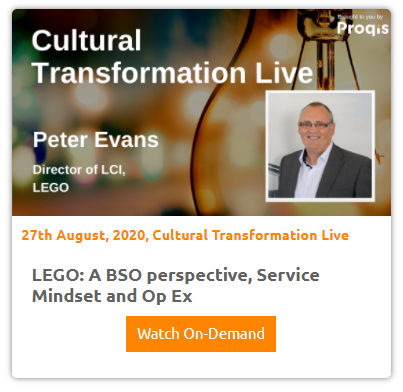 And then I'll talk a little bit about systems thinking, and by the time you've got to the end of that, I guess you're probably thinking, well, when you're going to talk about something really interesting. Well, I'll also give you some examples of something we're working on at the moment called the BSR Digital Roadmap, and a project that I'm leading for BSO right now, and then, and then talk a little bit about principles and those things, and I hope you find it interesting. And, as always, it's an absolute joy to be here, and I love being part of the beach host events, and the chance to talk to a wider audience, which is, which is always good.
And then I'll talk a little bit about systems thinking, and by the time you've got to the end of that, I guess you're probably thinking, well, when you're going to talk about something really interesting. Well, I'll also give you some examples of something we're working on at the moment called the BSR Digital Roadmap, and a project that I'm leading for BSO right now, and then, and then talk a little bit about principles and those things, and I hope you find it interesting. And, as always, it's an absolute joy to be here, and I love being part of the beach host events, and the chance to talk to a wider audience, which is, which is always good.
So let? let me get going of it.
So Lego mission is to inspire and develop the builders of tomorrow, and one of the things about working for Lego, I guess many of you know. We're a privately owned business, the family started the business in 19 32.
They still are very much the leading, leading us and, and leading the way, particularly from a from a cultural from it from a cultural and from a values perspective. And one of the three big reasons why I joined Lego is the Lego group is because of the values, and because of the way we think and talk to people.
So my wife calls this. A, a gift at the end of my career. Well, it's one of those gifts is pretty hard work, right? But, but actually, it's also been an enormous amount of fun.
and the chance to kind of play alongside all of the other things that we do in, in loco couple. Of couple of fun facts I like to start with. And I apologize if you've seen this before, but basically, if you took 6 2 by 4 bricks of the same color than you'd find there, are about 915 million ways to combine those six bricks. I often kind of joke that just about as many opportunities as their artist grow up in a piece sometimes, but. So, an enormous number, and it's that variability, and that ability to, for so many combinations, which makes Lego, as, as, as, as an educational toys.
What does as A, as a, as a fun toy? Such a great place to be from an innovation point of view because there are just so many options. I also like to tell people that were the largest tire manufacturer in the world with over 700 million ties every year. And they don't put it, put it in perspective. I have to be careful here, because, of course, if you were talking to good yet, I will tell you that the enormous processes they go through to make tired and so much more simple than 700 million is still a very, very, very, big number.
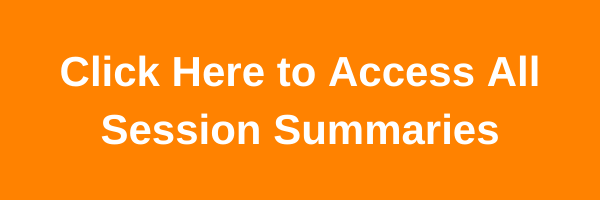 The key thing for us in lego and the driving force behind, I think, our culture, the way we think, the way we behave, it's what's called the Lego brand framework.
The key thing for us in lego and the driving force behind, I think, our culture, the way we think, the way we behave, it's what's called the Lego brand framework.
And this has existed for quite some time, actually, so slightly, in slightly updated of light. But but still, this represents such a massive part of us, and why people stay in, and join Lego, why they stay in lego and why they thrive and, and enjoy the opportunities for being here. You can see on this chart, obviously, the ideas, values around imagination and creativity, fun, learning, caring, and quality. And unlike many other companies that I've worked for in the past, those values aren't posters on the wall there. Things we truly believe in.
We have a saying, which is, Let it go over ego, and we mean that we worked together on, We don't always agree, of course, that would be completely unnatural, but we figure it out. Let me move forward.
And we have some very clear promises that underpin that around the joy of building the pride of creation of mutual value creation without without partner.
So, I might bear, so, our shared service for that is we try very, very hard to pay our vendors, we try very hard to make sure that we give our customers whether they're internal or external. Same, high value experience. And, so we, we want to make sure that we look after our people are very strong. And that spirit of only the best is good enough is a massive part of how we jail, because we have an eye for what good looks like, we have an eye for for, for the ..., and we try and make that work every time. And I hope for those of you who are our customers, you and you recognize that as well, it's a very strong part of who we are. So this brand framework kind of underpins everything, and it's the starting point for everything we do.
And it's a reference point all the time.
So I'm going to share with you a kind of slightly personal view of of culture.
I was watching a TV program, the other night, actually a BBC TV program about gardens in Japan. And, in that program, they were talking about they were talking about something called, ma, the negative space.
The space between. And there's a kind of concept of beauty that says that the space in between, say, if you have a flower arrangement, or a tree or anything else, the space in between actually helps define. The whole.
And as is as important as the whole. And, if you take a little bit further, this, actually, it says, suppose my course, you can, you can have an argument about whether you think this is a poem. But, if you, if you kinda see what this says, it says, 30 spokes meets in the hub, though, the space between them is the essence of the wheel.
Pops are formed from Clay, does. The Space Insights is the essence of the pot roast with windows and doors from the House.
The space within them is the essence of the house.
And if you start to think about that, and you start to think about culture in that way, you start to kind of get why culture is a very hard thing to get your arms around. And it's a very hard thing to change, because it exists in some very strange places. So, if you think about, what does that mean in corporate cultural terms?
Then if, if we believe that culture is what people do when no one is looking, is the way we behave, the way we do things around here, Then the concept of mom makes even more sense.
Because by understanding the space between, you start to truly believe that culture believes the culture of a business, that we start to truly understand the culture of the business. Which probably would have been a better way of saying this.
And it's that, the is, is why I think, when I look at Lego as an example, and why I compare that to some other businesses that I've been part of over the years.
Why Leggo perform so incredibly well, and why it works?
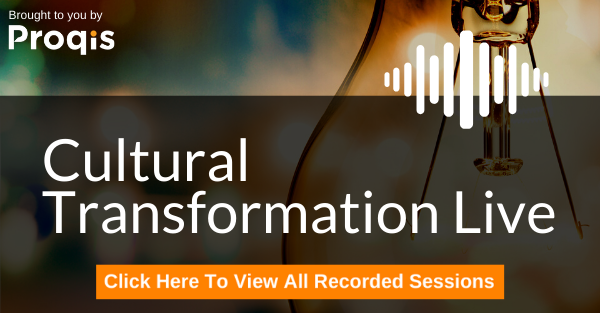 Because, in that space, in the bits that are not written down, and as I say, they're not posters on the wall, but in the bits that are not written down, People know how to behave and what being part of Lego names.
Because, in that space, in the bits that are not written down, and as I say, they're not posters on the wall, but in the bits that are not written down, People know how to behave and what being part of Lego names.
And it's a very, very important part of our everyday life. I kinda have a health warning here, so just to be kind of careful here.
I don't, I don't consider myself an expert on there, so I have been around for a long time now, and I've been working in change environment, for instance, formerly in finance, but in the change environment for over 30 years now, but I don't regard myself as an expert, and I don't know that you can be an expert that purely my view.
And it makes sense to me in why the Lego group achieved so much, so so well, because when all else is, is when nothing is around and nobody is there to check, people habitually are doing the right thing behaving in the right way continually moving the business forward.
And because of that, it makes governance and a whole range of other things so much more more easy.
So, order those mechanisms that you have in an organization kind of work. They work. Because people want them to work and they want them to be there. So, when change comes along, as long as change happens in a way that people can recognize I, within the values, within our promises and those sort of things, then the concept of change is quite easy in that respect. And, so, it moves reasonably well, of course, where it joss's, when people try and come in and bring whole new concepts, and whole new words and whole new language, and that makes it difficult for people. And, of course, it jaws, and then people find it very hard to do so.
Although I was watching a gardening program, I found it kind of really interesting, and as I reflected on it, it became clear to me that that's kind of what it's all about. It's not about the Process maps, and it's not about the plans. It's about the space between, and how people behave, those things. So, that's kind of my first part around this.
I also want to talk to you a little bit about, I guess, about myself, because one of the things we've been doing, and, actually, the very last thing I did in India, office, in Ireland, before, all travel was stopped back in.
Towards the end of February, early, March, was, we, were part of, were lucky enough to be part of a, of a kind of learning event, called, Leading from Purpose. And this comes from a book I chase, called Purpose To Impacts Automate. This comes from a book called Lydia from Purpose by Nick Craig. And we had some amazing sessions now.
I guess I'm a stage in my life, where I really need to sing out.
Not a plan for what happens next. I'm 65 years old. I don't want to work full-time forever. I can't see me I've given up, but I don't want to work full-time forever. But I do also want to do some other things, and have some other plants. And so, you know, for me, this was kind of very, very useful, and almost cathartic, and an ability to kinda sink for the future.
And if you think about it, if if you don't know where you're going as an individual, then how can you lead anyone else?
So if you're not clear on your own purpose and if you can't share that purpose, how do you, how do you take it further forward? So I guess the question from me to you is, do you really understand your own purpose from a personal, from a deeply personal point of view? And does that purpose gel with what you're doing today? And if it doesn't, do you have a plan for doing something else? Or if it doesn't, do you need to go do something else? And it's a very important question, I think we need to ask ourselves on a continuing basis.
Now, I'm really lucky, I, I work for the Lego group. First off, we get the chance to have these discussions.
But also, I can talk to people very openly, about some quite sensitive things.
I can remember being part of another business back in the, back in the mid noughties, and making a comment that, my wife and I, at the time were looking for somewhere to live in in Wales, particularly, because eventually, we retire, that go back to my boss, and then to a charter. I was looking to retire, and therefore, don't, don't find Peter anything else interesting today.
It was quite remarkable, The discussions I've had in Lego couldn't be more different, that they're very open. They're very honest, and it means that we can, we can work from a very honest place all the time. I remain ambitious. I'm still doing new stuff, in fact, I'm going to talk to you about something new in a short while, but that doesn't mean that I don't also have a personal plan.
That I can align my personal plan, and the way I think, and the way I behave to to, to the lego group. and too much to my wonderful team, that I work with. Teams, I should say. Whether that's the leadership team, or my own team, instead of performance management, or the wider BSO, organizational, whatever. I know I can work in that environment, because my values at work well on my purpose, fits to that.
And just to take that a little bit further, one of the things we're encouraged to do is kind of have a starting point, that mine. My personal phrase motto, if you like at the start of mine, is called Releasing Angel's from Inside the Stones.
It comes from Michelangelo and his comment about The fact that many people will just see rocks in front of them. But what he saw was an angel, and his job was to carve the stone until the Angel emerged.
Now, from a leadership point of view, I think that's very much my job, and part of my purpose for my remaining career and other things I'm doing, whether that's at work at Lego. at home, with, with my wife, and the amazing career that she has undertaken, always. Or with the Scout Association. And work I do with montgomeryshire for the Scouts. All of those things, may are really about helping leaders emerge and giving them the space and some of the great advantages of head through my life. Particularly with things like the scouts which I've actually just come back to after 50 odd years. But who gave me my first chance to be a leader as a 10 year old with a patrol, going camping, and doing all of those sort of things. And bring on my, one of my big goals in life, is to help people on that. And to give you a little example of how that breaks down further, this is part of my plan.
.png?width=742&name=Screenshot%20(4).png) And for this year with a logo. So there's some code in here, I'm sorry about that. But working with it is MPs. So, business services, organization, SPM, it's my team citizen performance Management, and all other teams to support the identification, and development of great leaders practicing my purpose delivering my skills, and seeking feedback to improve constantly.
And for this year with a logo. So there's some code in here, I'm sorry about that. But working with it is MPs. So, business services, organization, SPM, it's my team citizen performance Management, and all other teams to support the identification, and development of great leaders practicing my purpose delivering my skills, and seeking feedback to improve constantly.
Now, this is 1 1 1 element of, of my my plan for this year. And I have found this journey is the ability to describe, is absolutely cathartic, in terms of my own understanding of myself. My ability to convey that to others. because I openly share my purpose with my colleagues and with my friends, and with my wife and a whole range of other people. And, and it. And it helps me, I think, do a much better job in terms of what I tried to do All the time. Which is to work inside, cultures, great cultures, and help them transform, and, and become even more, excellent, and they already are.
So that's a bit about kind of about me.
The last bit of theory, if you like, is here, I'm, I've kind of come back to system thinking after a bit of a while away with when I was in GE Capital back in the nineties. It was a required book to read as a as part of the leadership development program.
And I loved it at the time.
I found it a bit hard going, but I loved the time I then got turned off it fairly strongly by by it being kind of thrust down my throat as a, as a toolkit.
And, as it, and I'm being told that actually, all of the tools are just for idiots. And, therefore, Lean and six Sigma doesn't mean a lot if you don't understand the system.
Well, My view, always, with all of these things is that actually, to be a great leader, and to be able to work in, in, in the sphere of operational excellence, or whatever you are doing is that you need, actually, the broadest, deepest possible toolkit you can get.
And whatever that is, you need to, then, have the capability, and the mastery, if you like, to be able to grab thought and, and do the right thing, with the right tool, at the right time.
And that, actually, is, what changes all about. It's not about, have you got a great process? It's not about whether it's at Cairo, Kotter, or any of those things. It's actually about, do you really understand? The what what change is really about, and do you have a kind of mastery of a vast array of tools, so that you know where to go, when you get there. Now, clearly, mastery comes with time.
You can't just switch it on. And I remember back in emoji days, interfering people who want you to be master black belts, who's won, only, just come out university. And two had never done a project. And three had only just done that. It had only just finished their training. And these were wonderful people who deserve the chance at a few things, but asking them to lead change, literally change, was quite a big ask, right? And they used to get slightly upset with me when I ask them what they've done. And they say, Well, I've got this MBA enough, You know, I was in all these societies and all this sort of stuff. And say, Well, if you actually changed, and the answer was often not very much. Now, I'm not saying that the fact that the youngest problem here, but I do think we need to be careful.
When we look at, who we have in our teams, and whether we really have people have the understanding, that deep understanding of people, that helps them to make change, Come back to that in a, in a moment. So the fifth discipline talks about various, very various elements, personal mastery, mental models, building a shared vision, which, of course, many of you will recognize from a lot of different change management. Approach is not least of all Kotter.
Team Learning and, and finally, System Sync in, which brings all those things together.
And it's a massively important part of the way we think about, uh, businesses.
And if you put that, let me try and put it a little more sensor, it simply with this kind of slightly nasty Venn diagram. So, if you think about it, there's, there's the body corporate, there's there's the systems, the processes, the machinery, and all of those things. Someone's on one side of the piece.
But on the other side, of course, his body corporal, And one of the things we tend to forget about, is, there are humans in here? And those humans are living their life, and, you know, in modern days, in, ..., you know, often, often, remotely, often with children to look after difficult family stuff. Bad things going on, Whether it's in their neighborhood, or with their family, or whatever it is.
And we forget about that, and somehow think that systems thinking is only about only about the business, but but it absolutely isn't, because the sweet spot a wedge shaped really works is when the body corporate, and the body corporal come together with vision and mission.
 The system then is at Full Power. And of course, as you can imagine, it's that piece in the middle that looks incredibly busy, which is where the culture really emerges.
The system then is at Full Power. And of course, as you can imagine, it's that piece in the middle that looks incredibly busy, which is where the culture really emerges.
And as I've said, again, every block of stone as a statue inside it because as that comes together, you then can start to see where those angels are and how that, how that works.
And so if you get those things aligned, which I believe Lego Lego group has done very, very well over the years, and is doing very well very well again this year, is because those things really come together to work with very clear, because of the Lego brand framework, it's very clear about what is what, what it's all about to be in. The body corporate is as efficient as it could be, given the time, and the money, and the space, and all those other things. And we make it work. And the individuals that come because they have the same values, because they love the values, and they love the business, because it allows them to express themselves and be innovative and to drive things forward.
So, moving along quite quickly. Coastguard X, arguably, the father of existentialism and a Danish course said that all perspective is individual and you would say, Well, I'm not really there yet.
So, of course, we know, we know, we know that intuitively know that, but yet, we don't tend to think of it that way. So, we tend to think of change as a mass as a game for the masses. But change is actually, when it's, when it comes down to it, a game for the individual.
And however many individuals you've got, whether you're a business of 10, or a business of 30 or 100,000, it's still the individuals who make up their mind and help you and decide whether they're behind with four against the changes you're trying to achieve.
And all change, of course, is situational.
Because if you then start to think about the individual, and it doesn't matter who you're talking to, at what level. If they're going through a rubbish time at home. If they, if they've had arguments, if that child is a lift, all of those things possible.
And, of course, that matters. And, of course, we know that timing matters.
Because we also notice that a lot of change fails when you don't get the messages, right.
When you don't manage to convince the key people to move forward, and that you don't understand the real situation, that the businesses, right. It's that old thing about asking people to drain the swamp when they're fighting alligators, right.
But the journey has to be consensual and logo. It absolutely is, so we know where we're headed, and we know we want to go there. So that's a very good starting point.
You don't have to go same pace and it's a fallacy to think that you do we all do need to get that and the goal is to build a learning organization not HUD thinking.
So from a system thinking point of view, what we really want to be is a place where everybody is learning and growing together and get an excitement of the opportunity to change and move forward. Not being in dread fear of it.
Because they feel like it. Either it will take away their long and skill, or it will take away that ability to earn any of those other things. So, you know, SSA, I think we're very fortunate place in the Lego Group. And don't, don't get me wrong, we, we run this company very, very efficiently.
But we also have the time to help people on that on their journeys along when we do so.
So let me kind of make it real for a little while. I guess some of you are probably thinking, well, why aren't you going to talk about something practical? So?
From a practical point of view, one of the things I've just picked up is, and I'm leading for ..., is, we're building a digital roadmap, and that digital roadmap is, is, is a very, very interesting journey for us. We've kind of, in the past, been a place where, you know, we have a bit of discretionary money, chair, and we kind of have a bit of an argument about what we want to do and the loudest voice wins, and we kind of implement something, but we don't, we've never really had a clear strategy.
And if you layer on top of, kind of lego group has been probably people will hate me for saying this, but that I've been on a learning journey about how to get to a future place in digitalization.
Then the timing is perfect for us. We've been going through some, some work with, with our technology organization, across the business, to work out what our overall roadmap is going to be for the next 3 to 5 years, and we didn't bear, so, of course, if we want to leverage that, and then if we want to bring some of the amazing things that we think we're capable of around speed, and insight, and accuracy, and a whole bunch of those sort of things, we need to move to.
And of course, you know, you can have, and you have all these arguments about, well, you know, do we use the current ERP? That brilliantly, well, are we doing enough RPA, shouldn't we be out there by an AI right left and center. And I think one of the nice things that's changed over the last couple of years, I don't think I've been to a conference recently where people are posted about how many, how many robots they go. Because I don't think that's really ever been what it's all about. So we're trying to build a digital roadmap, and that brings together a whole bunch of forces. Of course. 1 of 1 is the workforce, one is around the organization, and, of course, the third one is about the technology.
But this projects as such, is not really about the technology. It's about the workplace of the future, and how we will work as a group to deliver excellent services for the Lego group.
And how are we going to make that work? And how can we expand sap?
How can we take it to a better place?
So first off, of course, is, how do we operate and behave as a digital native workforce? What does that look like and feel like for us for the future? Because I can tell you today, we really are not. We have still have a lot of manual stuff going on all.
 Although, we have one iteration of sappy, which helps us massively, We have a lot of manual stuff still still happening.
Although, we have one iteration of sappy, which helps us massively, We have a lot of manual stuff still still happening.
How to organize in order to embed digital, into the organization, and, therefore, what is the change journey? And the culture changes that we're gonna kinda gonna need to kind of make sure, we change the culture. But we certainly change the way work happens.
And then what type of technology, lastly, what type of technology, innovations, and needs to support the journey. So, it's a very broad, broad span of a project, which we're working on, As you can see, this slide is shared with the permission of Deloitte, because we're working in partnership with them. I'm leading it from Lego BSO point of view. We have an amazing group of people from helping us on this journey to bring their global business services expertise.
But also, to open up the art of the possible, and to take us further in for that. Then, although there's lots of names around the outside of this, and please don't get hooked up on any of those, some of these where we're using today.
Some not, and this is not actually our intention to kind of talk and promote, or, or even move into, some, into some of these things, But what is the experience that we want to have? So, we will define the experience. What will that mean around personalization, accessibility and collaborations, What sort of speed are we talking about here in terms of agility integration and automation, and what sort of analytics, the insights, that we'll be able to deliver around. analytics, proactive, decision making in innovation.
And believe me, for us, this is, this is a big step, Will, is quite a short project, but it's a big step, and will define our future for quite a long time to come, just to kind of close this piece of it. We're placing a major emphasis in the workplace transformation elements. And so my major job in this is actually around the change management, change, facilitation of this, of this journey, both to create a roadmap, To start with, because we have streams, process streams, service streams, you have very clear idea of what they would like to do for the future.
But the third, for the first time, we're kind of smashing them together and forcing a joint discussion about the order of things and the priority of things and what we will do first. And for some people, they won't have to be patient on that journey For others, they will. They will move quite quickly.
So we're working kind of Level one is to understand and The and determine. The current digital maturity level II gives us the chance to look at the are the possible in the future with digital labs, workforce Trump's transformation labs and those things. And three, of course, gets us to a digital transformation roadmap, and allows us to take the next steps forward, and to work out how we can deliver that. What exactly. We're going to deliver with it, because it will come in court in grand, seems. It won't say, go buy this software, go by that software, and then we'll, we'll move it forward from there with a governance that supports that. And we deliver again. So, it's very exciting times. And even for this whole dog guessing it said, it's been a brilliant opportunity to want to work with some very talented people again, but also to be at the front of something so transformative for us.
So just as a final thought, I'd say almost bringing it back to the situation we're currently in until it, you know, in terms of my team, we've done a whole range of things. We have a team's site called Working from Home, but not alone, where we show where we share what we're doing. We have fun. We've done quizzes. We've shared pictures. We've done all sorts of stuff on that.
But what's what's for me is important is that I strongly believe that the best way to survive any crisis situation is to stay true to your established principles framework and activities, and never to compromise on those.
Those are the things.
Those are the guiding Things, those Things in your Heart, like the Lego Bram framework for us, that makes it really clear about how we behave, how we take these things forward, and that we leverage and accentuate the positive and in our culture, where necessary, lifting it to another level.
And learn, Learn, Learn all the time.
So, constantly giving people the opportunity for new experiences. The chance to learn. the chance to grow. And use that growth. To develop some of the, some of the brilliant things we're doing right now in ESL. And of course, we must focus and increase our focus on well-being.
We gotta be even more connected.
We have to lead and take part in the fun.
It's no point. You're just sitting on the outside of it, Sad, isn't it, great. My team are having a laugh, you have to be in there.
Be openly empathetic, of course. And trust that teams and people to work out how they balance work priorities, and family and personal needs, and be clear about that trust. We've just had a lovely exercising my team. Sadly, I should have included it here.
But, I kind of ask people to talk about how, how, how they want to feel when they, when they work, as part of our team, and we have now a lovely picture of those words, you know? And of course, it includes things like trust. And it includes things like empathy, but it also includes things like getting stuff done and moving forward and learning and growing. And it's a very, very positive thing. And we're now using, that's a very core focus for us. Because if we keep that on top of the brand framework, on top of a very positive culture, and a very successful part of the business, then we know that change becomes easier and easier when we do that. So, that's about all I had to say today. I hope you found it interesting. And even if you didn't, and you have some great challenges, please, please feel free to share them. It would be lovely to hear. So, Joseph, can I kind of hand back to you?
We can, we can be open for submission for some questions.
.png?width=742&name=Screenshot%20(4).png) Fantastic. Peter, always always a masterclass on so many different aspects of cultural transformation and, and I think that the, you, you talked about something that's very critical, there is no organizational transformation without personal transformation. Organizations just reflect who we are as individuals. So, ask questions. I ask the audience to continue providing or questions. I'll keep an eye on the monitor here for those questions. And some of the questions that have already emerged have to do if the initial portion of your presentation. And it's about that. There's a multi-tiered number of questions here related to purpose, So, if you don't mind.
Fantastic. Peter, always always a masterclass on so many different aspects of cultural transformation and, and I think that the, you, you talked about something that's very critical, there is no organizational transformation without personal transformation. Organizations just reflect who we are as individuals. So, ask questions. I ask the audience to continue providing or questions. I'll keep an eye on the monitor here for those questions. And some of the questions that have already emerged have to do if the initial portion of your presentation. And it's about that. There's a multi-tiered number of questions here related to purpose, So, if you don't mind.
I if I personalize this a bit. What is your purpose here? And then how did you come about finding that purpose?
So, the purpose of the motto for my purposes is, is the Releasing Joseph and Stones My purpose is to work with people, whether that's younger or older in, in, in leadership aspects to help them develop their leadership capabilities. And to kind of leave like a Lego of future with great leaders who are on a development past, who know how to learn you.
Know how to grow, and who know how to lead, and it came about, one of the things you do in this, in, this purpose to impact workshop is you talk about your life and your history and what drives you and what has driven you.
And when we were doing that, I was kind of reflecting Black, two very happy times. When it when. When I was, when I was a kid, and didn't particularly have the most wonderful childhood. But, I'm not the best relationships sometimes with my father. But I was part that I joined the scouts. I was in the Cubs first and then joined the scouts and then you know, and then pick up a older did. Some of those other things. And what gave me was, one, an ability.
To work in a team.
Very, very old, and at very early age. And secondly, was it gave you leadership?
Because if you're in the Cubs and you're, you know, between 8 and 10 years old and you're given. The job is looking after some, you know, being painted the leader six, or as they call it for a group of young people you kind of thrust into leadership stuff. And at the time, you're not thinking about that as leadership. Particularly, you know, they don't know it from a technological point of view.
But it actually, it gives you this amazing opportunity to learn.
And when I was reflecting earlier this year, some 50 years after I left the Scouts, what was clear to me was, that was a kind of starting point for me, for a 50 year journey, to kind of understand leadership and 2 and 2. And, and, actually, the thing I loved most about work was being with a, with a group of people. Whether I was the leader or being a leader within leaders. And I think everybody has the propensity be A leader, whatever their role in an organization.
But to that, that was where I got my real joy. And where it where? When you, when you see great leaders in action, whatever level they are, in the business, it stands out a mile, and they make such a difference. They move things forward all the time.
You know, and I can think of so many examples through my life, of people I've met, or people or the mired, some of them sports people, so all sorts of things. Where you think, actually what I was really admiring here was their leadership capability.
Know that one person who kinda stands out from the crowd every now and again assess, come this way, because that's, that's, and, and people do it because they know that this guy knows what he's talking about this talk. So, that's kind of what inspired me to do that.
And then, we kind of reflect on a group of things.
Not an, very importantly, not just work, but home, and all of those other things. And what's really important to us?
Yeah, and what was clear to me was that, you know, where I live now. And some of the things I do now, a massively important, I just reached the conclusion that I should go back and help with scouting again and move into that world. And, you know, my wife has the most incredible job, having been very, very senior in the corporate world, as move completely away from that to be a counselor, or people who've really been through some awful things.
And, my job in life is to support that, and to help there and be there. And so, home is very clear for me at work. It's very clear for me As, you know, if I can be the guy who planted the seeds for some great leaders for the future, even though I won't necessarily see that in the future, then, that's been a life, well, lived in my opinion.
So, that's kinda how I got to, where I got to, fascinating, but I didn't have to do it 10 years ago or 20 years, I don't know.
But now, it just seems to completely fit for me, that, that, that's fascinating. How, how do you think that organizations can create systems and environments where people can align their, discover, and align their individual purpose and alignment with the purpose of the organization? What do you see? That's happening. illegal that.
That could be I wouldn't call it a best practice, but maybe at least one good model for How you can align personal purpose with professional purpose to find that, that that work-life blend, if you will, that that that is gratifying.
So, that's, that's a real toughie, I think, because I'm, I think there are systems and structures, but some of those quite informal, and maybe even accidental.
I think some of it comes from the amazing values of the family, and that, the consistency.
That's come with nearly 90 years of leading this business, and they've kept to, they kept to their philosophy very clearly. They've kept their principles and they've kept their values, and we attract people based based on that.
And so I can tell you that when I interview people, I may well have a telephone interview with you about the tools and whether you can do change and stuff like that.
But when, when we meet face to face, it's all about your values, the change management, sit, whether that works, is going to work in this environment.
And, you know, for some people, it just won't.
So I, one of the things I think, which may sound quite harsh, but I also think that if you really get your head around your purpose, you may find you're in the wrong place.
I also think that's OK.
Actually, I think mature businesses can cope with that.
For other businesses, they will find that hard, and they'll find it hard to have the honest discussions, but in my business, I know, because I've had a very open discussion with my boss about the future, very open.
And we are completely aligned and completely OK with, with where we're headed.
And so I know I can trust Lego, I can trust my boss, and I can trust the people around me, and that's a massive thing, and there, I don't think there are systems and structures for that such bots.
We do call it out when it's wrong.
And we are very open about those, about those things when it isn't right, and when we do need to do something about it.
 And so, I think that's part of it.
And so, I think that's part of it.
So, the systems and structures become almost informal, because the values of the business are so strong, that it's clear what behavior looks like.
And I know that's not the same for it. And I've been in some amazing businesses, you know, people say to me, Well, gee, capsule that Muslim really hot, right? Loved it. Absolutely loved it. Because it Yeah and it was in the Welsh air, right? So, leadership was clear.
You knew where you were going, knew what you had to do. You knew what behaviors and what, what you had to follow. And so, and if you were willing to do that, you would have an amazing career opportunities.
So, I do, you know, it's different, it's different, it will be different strokes. But you hope we have very clear stuff about, you know, succession planning and all of those other things that everybody will have.
The question is, do you take that seriously, and do you really follow up on it? And unless it underpinned by the values and and the behaviors that are need necessary to deliver on that. And if it is then, you're in a pretty safe place.
Very good, Peter, we're all we're really out of time here, but I want to getting another 32nd question and answer, if you could, ..., who is based in the southern portion of France? He coaches business startups, smaller businesses, makes a commentary here that your presentations, fascinating, enrich, and the heel if you could share with him if you are a startup. If you're coaching a startup. If you're coaching a smaller business, where would be 1 or 2 key elements of a culture, like the one that you described here, for us that you would try to instill right away on a young company or a new company that's looking for direction.
I think actually, I kinda studied, wanted to have light. I can't remember the name of it for a minute, but I was also listening something on Simon sinek's stuff the other the other week. And I think it's being very, very clear about what you believe in.
And what, and how you're going to behave in terms of what you're trying to do.
So not just about the product, Not just about the, the delivery mechanism, and all the systems and stuff, but actually how you're going to treat people and the behaviors that you that you expect and that you will model for your organization.
So not some lovely, not, some lovely passwords, Not some lovely things to stick on, a poster that, things that you are willing to model.
And make a stand on.
And one of the things that Lego achieved and Christians and family achieve very early on, was to make a stand on quality and never. they never move off the marks that they'd set themselves.
And by doing that, it became clear if you are going to work there, then you need to understand that need to be clear about it.
I mean, I think on top of that lead with behaviors and stuff, it becomes really obvious how to behave in this company, OK, we do not do things. Suddenly, non purpose, we do not do things in a shoddy way. We make sure it's done right the first time and that comes from 19 32.
We've been consistent with that throughout. So you have to make some, I think, some very clear statements about your values, about what's important to you, and what you won't compromise on.
And then model that.
Peter Evans, it's always a pleasure. I can spend the rest. They just chatting between San Antonio, Texas, and the and the view and the whales because it's always so enjoyable to have such a rich insights coming from you. We so much appreciate your taking the time to, I know how busy you are, and we're very much value of your insights and your time sharing of a global audience today. We have over 2500 registered participants in this conference and so many are going to be positively influenced by your insights. So thank you so much for all of that. Thank you so much. Thank you very much indeed. And thanks for listening, everybody. Bye, bye, now.
Thank you, Peter. Ladies and gentlemen, this concludes Culture Transformation Live.
I hope that you can take some of the insights from Peter and many of the other brilliant speakers and industry experts, who share their journey of cultural, business, and digital transformation with you, reminders that they discuss. The conversations continue. You can look under my profile LinkedIn. There's a posting about the Conference and several comments and questions that you can still go on, if you are there, if you didn't get your question answered here. Also, you will receive an e-mail next week with the session recordings for all the sessions. So you'll have access to those session recordings.
And we look forward to seeing all of you next week at Beatles, process, mining live. It's a, it's a bit of a deeper dive on technology and process mining technologies, and how they are supporting great advances in value creation for so many organizations right now. We already have over 2000 registered participants for that conference. I think our limit is a 3000, So, please, if you haven't register, make sure you register that you guarantee your place, and that I hope to see you back next week and join us in this conversation. I'm honor and privilege to be the host of the sessions, and accelerating innovation, leadership development, value creation across the globe. So, thank you again. Everybody, Have a great rest of your week, and we'll see you next week on process, my new life. Bye, Bye for now.

-1.png?width=234&name=more%20(24)-1.png) Peter Evans,
Peter Evans,
Director of LCI,
LEGO.
Peter Evans was born in 1955. He joined the LEGO in February 2016.
The early part of his career was in Finance in various industries, including Defence, Financial Services and Telecommunications. Peter worked for General Electric throughout the 90’s including spells in
Manchester, Brussels, Shannon (Eire) and Connecticut.
From 2000 to 2013 he worked in Telecoms in the UK, first with Vodafone, then Cable & Wireless, before finally leading Operational Excellence for Virgin Media. From 2013 to 2015 Peter led Process Excellence in Northern Europe for Maersk Line, based in Copenhagen.
Since February 2016 Peter has been Director of LCI (LEGO Continuous Improvement) at LEGO with specific responsibility for Business Service Operations and is actively involved in establishing a
Global Business Services Organisation for Finance.

View our schedule of industry leading free to attend virtual conferences. Each a premier gathering of industry thought leaders and experts sharing key solutions to current challenges.
View Schedule of EventsWelcome to BTOES Insights, the content portal for Business Transformation & Operational Excellence opinions, reports & news.
-------------------------------------------------------
Search for anything
Insights from the most progressive thought leaders delivered to your inbox.
Insights from the world's foremost thought leaders delivered to your inbox.
Being a hero is all about creating value for others. Please invite up to 5 people in your network to attend this premier virtual conference, and they will receive an invitation to attend.
If it’s easier for you, please enter your email address below, and click the button, and we will send you the invitation email that you can forward to relevant people in your network.
View our schedule of industry leading free to attend virtual conferences. Each a premier gathering of industry thought leaders and experts sharing key solutions to current challenges.
View Schedule of EventsWatch On-Demand Recording - Access all sessions from progressive thought leaders free of charge from our industry leading virtual conferences.
Watch On-Demand Recordings For FreeDelivered by the industry's most progressive thought leaders from the world's top brands. Start learning today!
View All Courses NowThe premier Business Transformation & Operational Excellence Conference. Watch sessions on-demand for free. Use code: BFH1120
Watch On-DemandInsights from the most progressive thought leaders delivered to your inbox.
Insights from the world's foremost thought leaders delivered to your inbox.
Being a hero is all about creating value for others. Please invite up to 5 people in your network to also access our newsletter. They will receive an invitation and an option to subscribe.
If it’s easier for you, please enter your email address below, and click the button, and we will send you the invitation email that you can forward to relevant people in your network.
Courtesy of Nintex Pty's Paul Hsu, below is a transcript of his speaking session on 'Improve employee productivity during and post-COVID by ...
Read this article about HP, Best Achievement in Operational Excellence to deliver Digital Transformation, selected by the independent judging panel, ...
Read this article about BMO Financial Group, one of our finalists, in the category Best Achievement in Operational Excellence to deliver Digital ...
Read this article about Cisco, one of our finalists, in the category Best Achievement of Operational Excellence in Internet, Education, Media & ...


